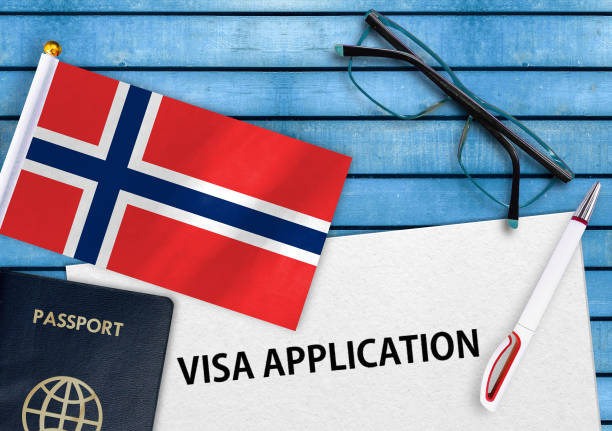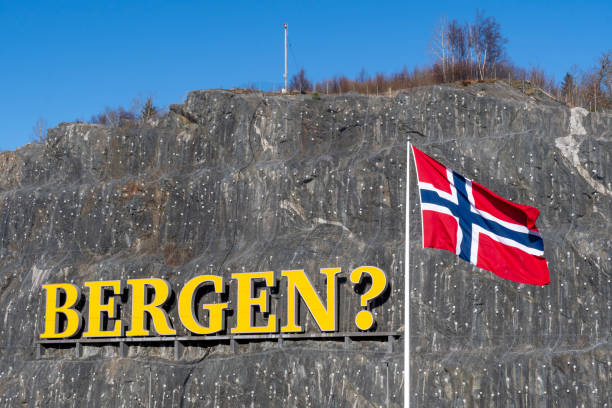Unveiling the Funding Landscape for Postdoctoral Research in Norway
Norway, a nation renowned for its breathtaking landscapes, cutting-edge research institutions, and commitment to innovation, beckons ambitious researchers seeking to propel their careers through postdoctoral fellowships. This comprehensive guide, equips you with the knowledge and resources to navigate the funding landscape for postdoctoral research in Norway.
Advertisements
The Allure of Postdoctoral Research in Norway
Here’s why pursuing a postdoctoral fellowship in Norway can be a transformative experience for your research career:
-
World-Class Research Environment: Norway boasts prestigious universities and research institutes equipped with state-of-the-art facilities and collaborative research groups. You’ll have the opportunity to work alongside leading scientists in your field and contribute to groundbreaking research endeavors.
-
Focus on Innovation and Interdisciplinary Collaboration: Norwegian research institutions encourage interdisciplinary collaboration, fostering innovative approaches to complex research questions. This environment allows you to broaden your research horizons and potentially delve into new areas of study.
-
Generous Funding Opportunities: Norway invests heavily in research and development. Numerous funding agencies and institutions offer competitive postdoctoral fellowships with attractive salaries and research budgets, supporting your research endeavors.
-
Work-Life Balance and Supportive Culture: Norway prioritizes work-life balance. Generous paid parental leave, reasonable working hours, and a focus on employee well-being create a supportive environment that allows you to excel in your research while maintaining a healthy lifestyle.
-
English Proficiency and International Exposure: The high level of English proficiency in Norway facilitates communication and collaboration with researchers from around the world. A postdoctoral fellowship in Norway exposes you to a diverse international research community, enhancing your professional network and global research perspectives.
Exploring Funding Opportunities for Postdoctoral Research
Securing funding is crucial for a successful postdoctoral fellowship. Here are prominent sources of funding to consider:
- The Research Council of Norway (RCN):
The RCN is the main public funding agency for research in Norway. They offer various postdoctoral fellowship programs across diverse research fields. Explore their website to identify programs aligned with your area of research and eligibility criteria.
- Marie Skłodowska-Curie Actions (MSCA):
The European Commission’s MSCA program offers prestigious postdoctoral fellowships for researchers from Europe and beyond. These fellowships support mobility within Europe, allowing you to conduct research at a Norwegian institution while potentially collaborating with researchers from other European countries.
- University and Institutional Fellowships:
Many Norwegian universities and research institutions offer their own postdoctoral fellowship programs. These fellowships might be specific to certain research groups or departments. Explore the websites of universities you’re interested in to discover their fellowship opportunities.
Advertisements
- Industry-Funded Fellowships:
Several Norwegian companies and research institutes offer postdoctoral fellowships focused on specific research areas relevant to their industry needs. Research potential industry partners in your field and explore their fellowship opportunities.
- International Funding Agencies:
Funding agencies in your home country might offer fellowships for postdoctoral research abroad, including Norway. Research opportunities and eligibility criteria offered by international funding agencies in your home nation.
Crafting a Competitive Postdoctoral Fellowship Application
Competition for prestigious fellowships can be fierce. Here’s how to craft a compelling application that sets you apart:
- Strong Research Proposal:
Develop a well-defined research proposal that clearly outlines your research question, methodology, and expected outcomes. Tailor your proposal to the specific fellowship program, highlighting how your research aligns with the program’s objectives and the expertise of potential host researchers.
- Exceptional Academic Record:
Solid academic credentials are essential. Demonstrate a strong publication record in peer-reviewed journals, relevant research experience, and a proven track record of success in your field of study.
- Letters of Recommendation:
Secure strong letters of recommendation from prominent researchers familiar with your work ethic, research skills, and potential for success. Choose recommenders who can speak to your research contributions and suitability for a postdoctoral fellowship in Norway.
- Highlight Relevant Skills and Experience:
Beyond research, showcase your transferable skills such as data analysis, scientific communication, project management, or experience collaborating with interdisciplinary teams. These skills are valuable assets for successful postdoctoral research.
- Language Skills (if applicable):
While English proficiency is widely accepted, demonstrate basic Norwegian language skills for fellowships at specific institutions. Learning basic Norwegian demonstrates your commitment to integrating into the research environment and fostering collaboration with local researchers.
Maximizing Your Postdoctoral Research Experience in Norway
Securing funding is just the first step. Here’s how to make the most of your postdoctoral research experience in Norway:
- Identifying a Host Institution and Supervisor:
Carefully select a host institution and supervisor aligned with your research interests. Research the expertise of different research groups in Norway and identify potential supervisors whose research aligns with yours. Reach out to potential supervisors with a compelling research proposal and express your interest in joining their research team.
- Integration into the Research Group:
Proactively integrate yourself into the research group. Actively participate in lab meetings, group discussions, and research seminars. Build strong relationships with your fellow researchers and foster a collaborative and supportive research environment.
- Networking and Collaboration:
Norway encourages collaboration. Network with researchers at other Norwegian institutions and participate in conferences or workshops relevant to your field. Building a strong research network fosters interdisciplinary collaboration and potentially leads to new research avenues.
- Dissemination of Research Findings:
Actively disseminate your research findings. Publish your work in high-impact peer-reviewed journals, present your research at conferences, and consider co-authoring publications with your colleagues to strengthen your research profile.
- Work-Life Balance and Cultural Engagement:
Embrace the work-life balance that Norway offers. Utilize your generous vacation time to explore the breathtaking scenery and experience the rich culture of Norway. Maintain a healthy work-life balance to avoid burnout and ensure optimal research productivity.
Visa and Immigration Considerations for Postdoctoral Fellows
To work as a postdoctoral researcher in Norway, you might require a visa depending on your nationality and the duration of your fellowship. Here are some essential considerations:
- Research the Visa Requirements:
Research visa requirements well in advance of your planned fellowship start date. The specific visa type you need depends on your nationality, the duration of your stay, and the nature of your fellowship funding. Information on visa requirements for Norway can be found on the website of the Norwegian Immigration Authority.
- Apply for the Appropriate Visa:
Once you have identified the required visa type, initiate the application process through the Norwegian embassy or consulate in your home country. Gather the necessary documents, pay the application fees, and submit your application well in advance to avoid delays.
- Registration with Local Authorities:
Upon arrival in Norway, register with the local police station within three months. This registration process allows you to obtain a national identification number, which is essential for opening a bank account, accessing healthcare services, and integrating into Norwegian society.
Additional Resources for Aspiring Postdoctoral Researchers in Norway
Here are some valuable resources to assist you in your pursuit of a postdoctoral fellowship in Norway:
-
The Research Council of Norway (RCN): Explore the RCN website for information on postdoctoral fellowship programs they offer, eligibility criteria, and application procedures.
-
EURAXESS Norway: This is a network of information centers that provide guidance and support to researchers moving to or working in Norway. They offer assistance with visa applications, finding accommodation, and navigating the Norwegian research landscape.
-
Siben (The Center for International Mobility): Siben assists international researchers with practical aspects of moving to and working in Norway. They offer guidance on immigration formalities, housing options, and social security.
-
Top Universities in Norway: Research websites of prominent Norwegian universities, such as the University of Oslo, the Norwegian University of Science and Technology (NTNU), and Bergen University. These universities often advertise postdoctoral fellowships on their websites.
Advertisements






